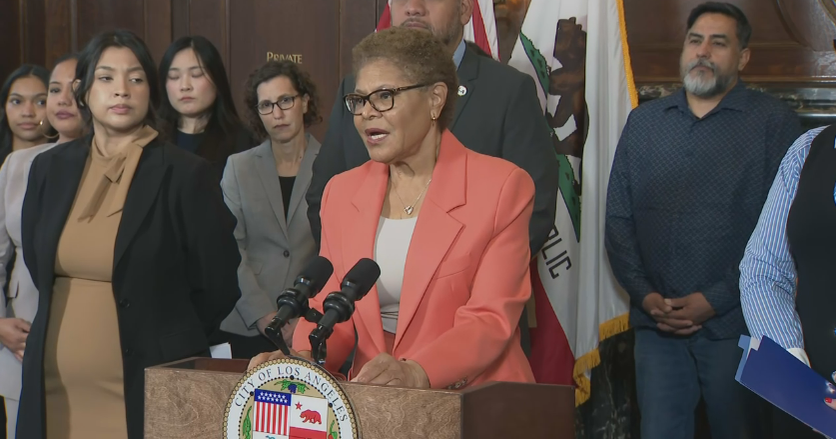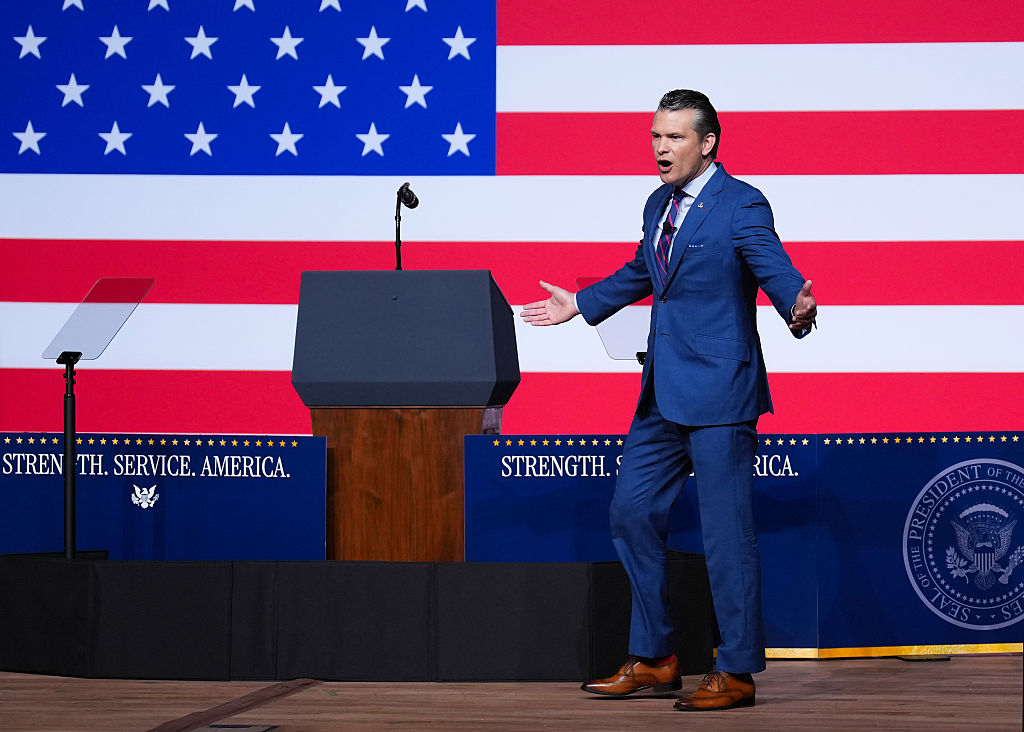Transcript: Mayor Quinton Lucas on "Face the Nation," January 16, 2022
The following is a transcript of an interview with Kansas City, Missouri, Mayor Quinton Lucas that aired Sunday, January 16, 2022, on "Face the Nation."
MARGARET BRENNAN: We go now to the mayor of Kansas City, Missouri, Quinton Lucas. He joins us from our CBS affiliate KCTV. Good morning to you, Mr. Mayor.
KANSAS CITY MAYOR QUINTON LUCAS: Good morning.
MARGARET BRENNAN: Omicron is surging hospitalizations in your city up 25% in the last week, are hospitals having to postpone surgeries, are they at risk of being overwhelmed?
MAYOR LUCAS: They are overwhelmed right now in Kansas City, really since the Christmas season, we have seen incredible challenges in our health care network, even getting employees that are working in our EMS services, fire department and in public safety. It is a substantial concern. It's why we have brought back a number of different requirements, including a mask requirement in our schools through a great level of controversy to make sure that government can continue to function, schools can stay open, our hospitals can stay open. And we're doing all we can from a local government level to respond to our challenges.
MARGARET BRENNAN: You've said you'd consider a citywide mask mandate if deaths and hospitalizations reached a certain point. Do you have a threshold there? What's holding you back?
MAYOR LUCAS: Right now, what's holding us back is, in some ways, the political challenge that we received from the state of Missouri. There have been numerous lawsuits filed by the Attorney General of Missouri, who is running for the United States Senate, a Republican who has sought mask mandates and called them things that are challenges to freedom. He's called them challenges and tyranny, those sorts of things that we face every time we issue a new mask requirement. The Missouri state treasurer has gotten into the act. But what we're really trying to focus on is more vaccination. What we're seeing is even though Omicron is spreading 80 to 90% of people that are in our ICU are those that have not been vaccinated. We're facing challenges because there is a substantial amount of misinformation out in the public about if vaccination is important, if it's good, if it's free, what it does to you. So, we're really fighting, I think, a battle on two different fronts. One is from my political right and those that are trying to say that this just isn't that big of a deal and then always trying to fight the information side to make sure that we get people vaccinated and safe.
MARGARET BRENNAN: But to that point, we have new CBS polling out today that really faults the administration itself for confusing messaging around COVID. The president's approval rating for his handling is at the lowest point, two-thirds of those polled cited confusion about COVID information and guidance. Is the federal government response here too confusing? Is it too slow?
MAYOR LUCAS: You know, I think those polls reflect a moment of frustration in America, certainly frustration in Kansas City time and again, and everybody in America knows this, every few months we thought that this would be over. I think what we recognize is now that COVID will be with us for some time, that we may continue to see new variants. But I do think that there is a role not just for the federal government, but for state governments to actually be helpful, right? We have seen in a number of different states, mine included at times where there has not been the level of assistance when we're looking for that intermediate step, who can actually deliver that testing to us in the cities, small towns as well. Who can actually make sure that schools can stay open? I don't think that those are federal concerns and those aren't at the feet of the president. I think much of that is how can our entire government system from local government up to the federal side make sure that we're responding in an active way? I just think the president's face is on any number of things, and so he'll continue to be blamed. But look, what I want in Kansas City are more nurses, more hospital workers, more staff and more tests. I don't care who they come from, whether they come from our state capitals, whether they come from federal government. I think that's what the people of America want on the ground.
MARGARET BRENNAN: You mentioned one of the people who is challenging your mandates is someone running for Senate in your state. I want to ask you, I know you're running for re-election as mayor, but you are rumored to also be considering a Senate run. What are national Democrats missing on the ground in states like yours? Do you think a Democrat could actually win a statewide federal election in Missouri?
MAYOR LUCAS: I absolutely think a Democrat could win a statewide election in Missouri. I think, first of all, because what you see right now is that we're trying to respond to a crisis of the moment. We're trying to make sure we're answering COVID issues, trying to make sure that people are getting back into jobs and talking about things that are responsible and reasonable, not looking back over the last four years, not trying to push what I think is false information, whether it be related to COVID, whether it be related to the economy or anything under the sun. I do think, of course, there's a communication challenge that we face, the Democratic Party is a very big tent. And I do certainly think that more national voices that are saying, look, Democrats are doing things that make basic sense now, trying to address supply chain issues, trying to make sure people have COVID testing. And fundamentally making sure that we're looking out for the people of Kansas City and America. You know, a few weeks back, my family came down with COVID, and then the toughest part, I have a nine-month-old baby, was seeing him sick. I don't think that there's any American who wants to see that harm to their young children, to their babies, to their families. That's what I see a lot of mayors looking to, Democrats, moderate Republicans and others. And that's why I think the public would be receptive to messages from folks that are on the political left.
MARGARET BRENNAN: You'd have to file by the end of March. Are you going to run?
MAYOR LUCAS: I- I have already said that I'll be running for mayor of Kansas City again,--
MARGARET BRENNAN: Right.
MAYOR LUCAS: – I'm excited to be mayor. I work with other mayors around the country.
MARGARET BRENNAN: Right. I was asking about Senate, which you're avoiding, but let's ask you about policing. I know you're coming here to Washington. You've got a spiking murder rate in Kansas City. I know it's the- the state that controls the police department, but when you come here to Washington, what exactly are you going to ask the Justice Department to do for you? We- we know the Biden administration has said executive orders are coming. They've been saying that since Nov. What do you need?
MAYOR LUCAS: You know, there I think there are a few different things that everybody agrees on, one is making sure that we have officers, but having enough police officers that work in the community. One of the battles that I think we get in in Kansas City and other places is not about the totality of police funding, but where are you spending it? Are you spending it on rank-and-file officers in our neighborhoods, on our streets that are working with community organizations? Are you working on community outreach programs? We need more of that in Kansas City and cities around America. I did a ride-along with the Los Angeles Police Department a while back, working with gang intervention units. That's the sort of work that we need, and that's what we're looking for in support from federal government. What we don't need are troops coming in without the request of mayors, but we don't need as a rehash of Operation Legend in the late Trump administration. I think that while it brought us a lot of boots on the ground, we still had our highest murder record ever in Kansas City actually that year. We want to have sustained programmatic efforts and responses. And that's what I hear all mayors asking for.
MARGARET BRENNAN: Mr. Mayor, thank you for your time. Good luck with the surge. We'll be right back.



